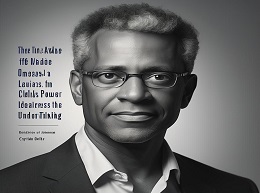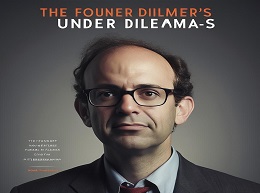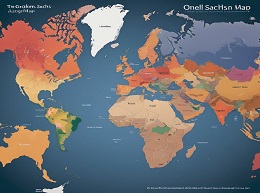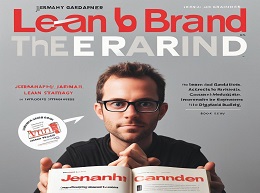The Disruptors Feast: How to Avoid Being Devoured in Today's Rapidly Changing Global Economy
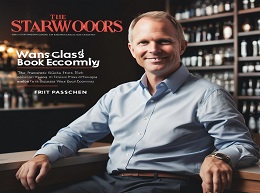
The Disruptors Feast: How to Avoid Being Devoured in Today's Rapidly Changing Global Economy
"The Disruptors Feast" by Frits van Paasschen is a compelling guide for navigating the tumultuous waters of today's global economy. With a rich background as a former CEO of Starwood Hotels and Resorts and Coors Brewing Company, van Paasschen brings a wealth of experience and insight into how businesses can thrive amidst constant change. This review delves into the key themes of the book, providing detailed analysis and examples to illustrate van Paasschen's strategies for success.
Embracing Change
Van Paasschen sets the stage by discussing the inevitability of change in the modern business landscape. He argues that disruption is not just a challenge but an opportunity for those who are prepared to embrace it. His perspective is grounded in his own experiences leading companies through significant transformations.
The Nature of Disruption
Disruption, as van Paasschen explains, comes from various sources: technological advancements, shifting consumer preferences, and geopolitical changes. He underscores the importance of understanding these forces to anticipate and adapt to changes.
Example: The rise of digital technology in hospitality, such as Airbnb, disrupted traditional hotel chains. Van Paasschen discusses how Starwood Hotels needed to adapt by integrating technology into their services, enhancing customer experience through digital check-ins and personalized services.
Cultivating Agility
A major theme in "The Disruptors Feast" is the need for agility. Van Paasschen emphasizes that companies must be flexible and ready to pivot when necessary. This requires a culture that encourages innovation and is open to experimentation.
Example: Amazon is highlighted for its agile approach. Originally an online bookstore, Amazon continuously evolved, entering new markets like cloud computing with AWS and streaming services with Amazon Prime Video. This agility has allowed Amazon to remain at the forefront of multiple industries.
Embracing a Global Perspective
Van Paasschen also stresses the importance of a global perspective. In an interconnected world, businesses cannot afford to be insular. Understanding and integrating into global markets is crucial for sustained success.
Example: Coca-Cola's global strategy involves tailoring its products and marketing to fit local tastes and cultures, which has helped it maintain a strong global presence. Van Paasschen shares similar experiences from his time at Starwood, where local adaptations were key to international success.
Leveraging Technology
One of the most critical strategies discussed is leveraging technology. Van Paasschen explains how technology can be a double-edged sword disruptive but also empowering for those who harness it effectively.
Example: The use of big data in retail has transformed the industry. Companies like Walmart use data analytics to optimize inventory, streamline supply chains, and enhance customer experiences through personalized marketing.
Building a Resilient Culture
A resilient culture is vital for weathering disruption. Van Paasschen advises leaders to cultivate resilience by fostering a sense of purpose and commitment among employees, encouraging continuous learning, and maintaining a positive attitude towards change.
Example: Zappos, known for its unique company culture, focuses on employee happiness and customer satisfaction. This resilience and adaptability have helped Zappos maintain a strong market position despite changing retail dynamics.
Strategic Partnerships
Forming strategic partnerships can provide a competitive edge. Van Paasschen illustrates how alliances can help companies expand their capabilities, enter new markets, and share risks.
Example: The partnership between Starbucks and PepsiCo to market ready-to-drink coffee beverages globally showcases how strategic alliances can leverage each partner's strengths. Starbucks provided the coffee expertise, while PepsiCo brought distribution power.
Visionary Leadership
Van Paasschen emphasizes that visionary leadership is crucial for guiding organizations through disruption. Leaders must be forward-thinking, able to envision the future, and inspire their teams to work towards that vision.
Example: Elon Musk's leadership at Tesla is cited for its visionary approach. Musk's focus on sustainable energy and his ability to rally his team around ambitious goals like electric vehicles and space exploration have positioned Tesla as a leader in innovation.
Decision-Making in Uncertainty
Effective decision-making in uncertain times is another critical skill. Van Paasschen advises leaders to rely on data, but also to trust their instincts and be prepared to make bold decisions.
Example: The swift pivot by many businesses to remote work during the COVID-19 pandemic highlights the importance of decisive action. Companies like Twitter and Square quickly adapted, ensuring business continuity and setting new standards for the future of work.
Netflix: From DVD Rentals to Streaming Giant
Netflix is a prime example of successful adaptation. Initially a DVD rental service, Netflix saw the potential of streaming technology early on. By investing heavily in content and technology, it transformed into a global entertainment powerhouse.
Example: Netflix's shift to producing original content, starting with "House of Cards," demonstrated its commitment to innovation and control over its destiny, allowing it to compete with traditional studios and networks.
IBM: Reinventing Through Services
IBM's transformation from a hardware-focused company to a services and solutions provider illustrates how established companies can reinvent themselves. By focusing on areas like cloud computing and artificial intelligence, IBM has stayed relevant in a fast-changing tech landscape.
Example: IBM's acquisition of Red Hat in 2019 for $34 billion was a strategic move to enhance its hybrid cloud capabilities, reflecting its ongoing adaptation to market demands.
Preparing for the Future
"The Disruptors Feast" provides a comprehensive roadmap for navigating and thriving in a disruptive world. Van Paasschen's insights are not just theoretical but grounded in real-world experience, making them highly practical for business leaders and entrepreneurs.
